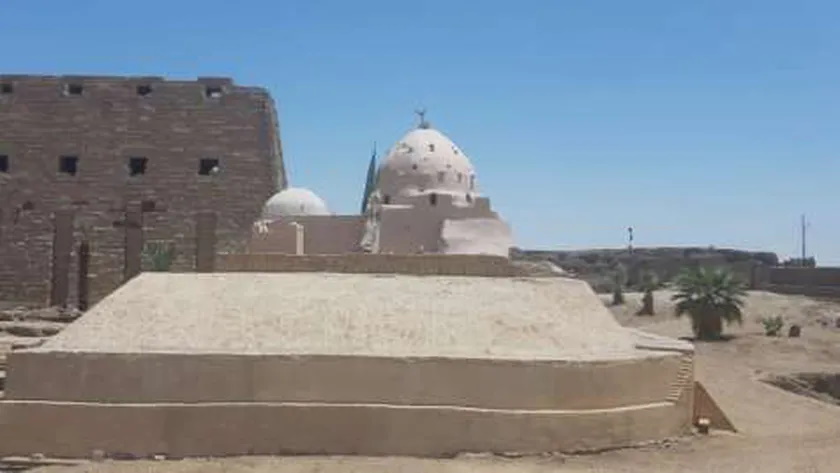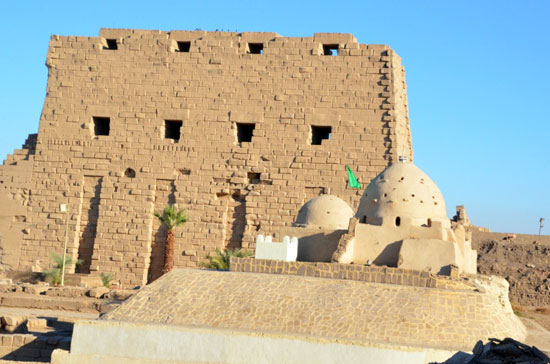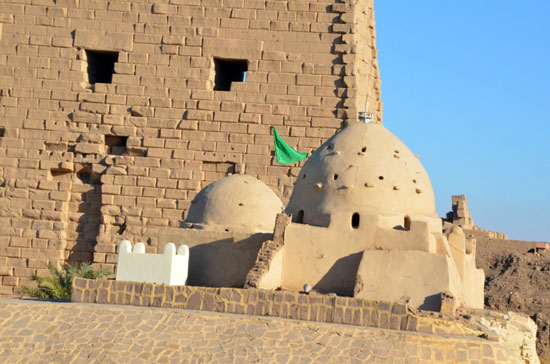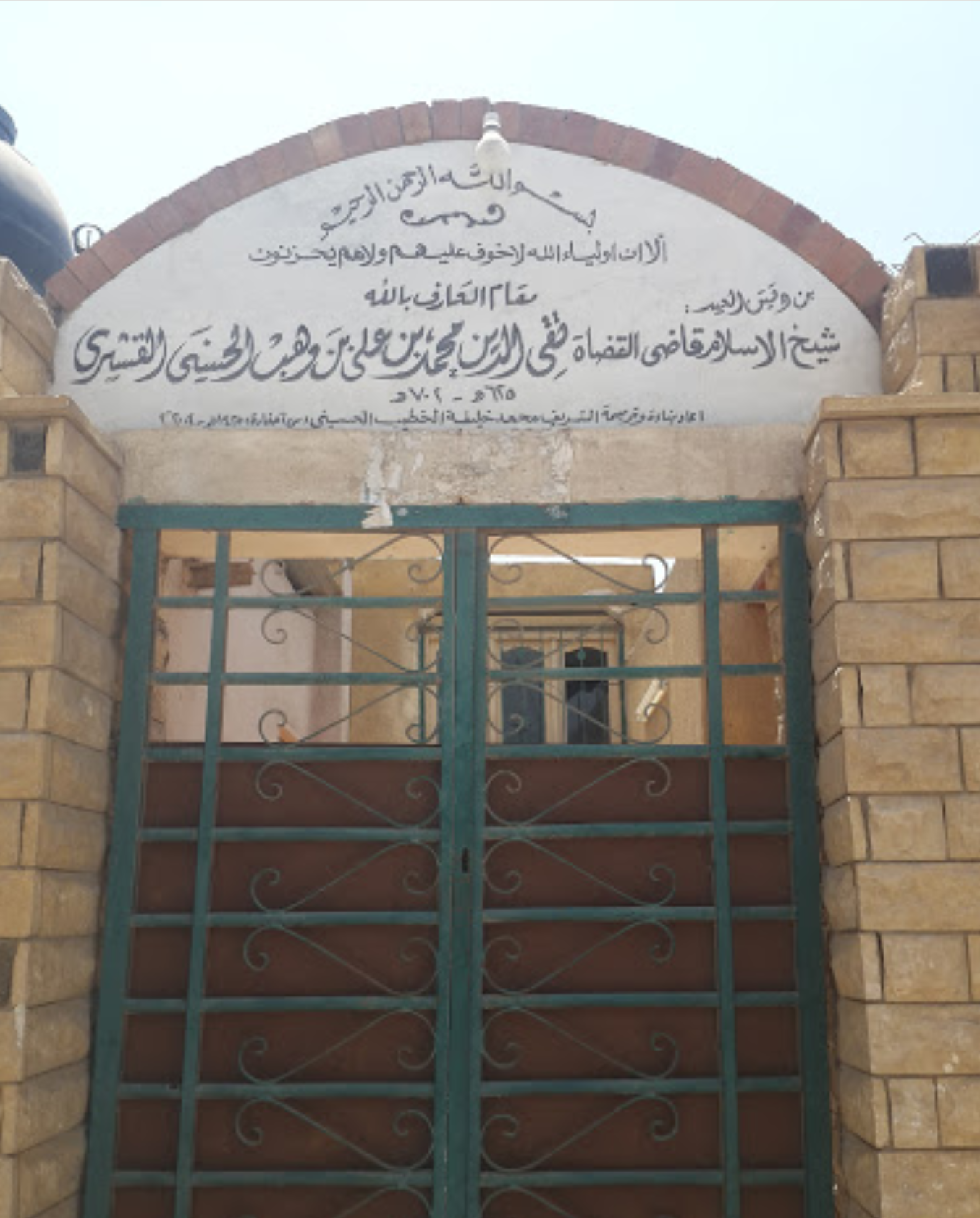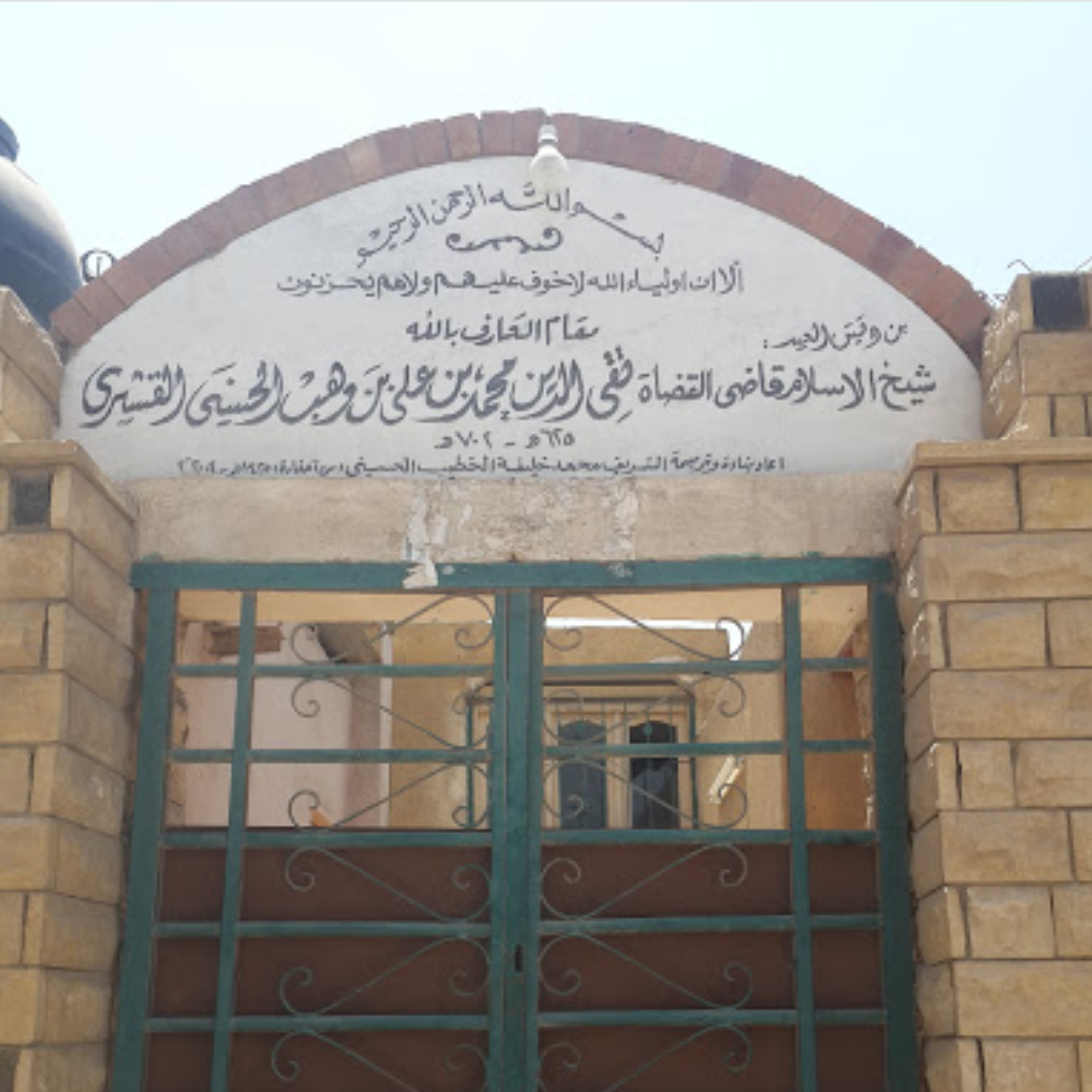Bio: Ibn Daqiq al-‘Id | الإمام ابن دقيق العيد
Imam Ibn Daqiq al-'Id
الإمام أبو الفتح تقي الدين بن دقيق العيدb 625 H. in Hijaz – d. 702 H. in Cairo (1228-1302 CE)
﷽
“We know from our masters person having diverged the fact that Ibn Daqiq al-Eid renovator is the scientist sent to the seventh century, referred to in the prophetic hadith, and he was the master of his time by his knowledge and righteousness in religion.” – Sheikh Taqi al-Din al-Subki
English
2. Anonymous bio
3. facebook.com
4. What he said about bi’da
t.b.d.
From: pelitakalam.blogspot.se
Ibn Daqiq al-Eid (1228-1302), is accounted as one of Islam’s great scholars in the fundamentals of Islamic law and belief, and was an authority in the Shafi’i legal school. Although Ibn Daqiq al-‘Id studied Shafi’i jurisprudence under Ibn ‘Abd al-Salam, he was also proficient in Maliki fiqh. He served as chief qadi of the Shafi’i school in Egypt. Ibn Daqiq al-Eid taught hadith to al-Dhahabi and to many other leading scholars of the next generation. In his lifetime, Ibn-Daqiq wrote many books but his commentary on the Nawawi Forty Hadiths has become his most popular. In it he comments on the forty hadiths compiled by Yahya Al-Nawawi and known as the Nawawi Forty Hadiths. His commentary has become so popular that it is virtually impossible for any scholar to write a serious book about the forty hadiths without quoting Ibn Daqiq.
His namesake ‘ibn Daqiq al-Eid’ however was gained from his grandfather who was described as being fond of sporting a bright white turban, one as white as the flour used to make pastries during Eid celebrations. From that point on, the name was passed on to his son and later to Imam Taqiyy ad- Din Muhammad ibn` Ali Ibn Wahb who would often be addressed as Ibn Daqiq al-Eid.
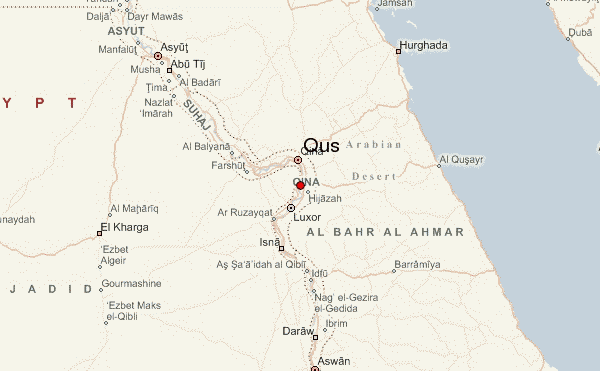 After memorising the Quran as a child, he attended various halaqahs in the city of Qus and was initiated into the Maliki school of jurisprudence from his father. His quest for learning however later brought him to Sheikh Al-Baha ‘Al-Qifti, a disciple of his father. He also learnt the disciplines of Arabic with Sheikh Mohammad Abu Al-Fadl Al-Mursi. Further deepening his quest for knowledge, he later travelled to Cairo to study under the tutelage and guidance of Imam Al-`Izz Ibn `Abd As-Salam of whom was regarded as the ‘Sultanul Ulama”. He studied the laws and foundations of Shafi’i jurisprudence from the later and was under the guidance of Imam Ibn ‘Abd al-Salam to the day he died in AH 660 (1262 AD). He later went on to Damascus to learn Hadith from Damascene scholars before finally returning to Egypt and settling down in the city of his childhood, Qus.
After memorising the Quran as a child, he attended various halaqahs in the city of Qus and was initiated into the Maliki school of jurisprudence from his father. His quest for learning however later brought him to Sheikh Al-Baha ‘Al-Qifti, a disciple of his father. He also learnt the disciplines of Arabic with Sheikh Mohammad Abu Al-Fadl Al-Mursi. Further deepening his quest for knowledge, he later travelled to Cairo to study under the tutelage and guidance of Imam Al-`Izz Ibn `Abd As-Salam of whom was regarded as the ‘Sultanul Ulama”. He studied the laws and foundations of Shafi’i jurisprudence from the later and was under the guidance of Imam Ibn ‘Abd al-Salam to the day he died in AH 660 (1262 AD). He later went on to Damascus to learn Hadith from Damascene scholars before finally returning to Egypt and settling down in the city of his childhood, Qus.
Upon his return to Qus at 37 years old, he was appointed as a judge according to the Maliki mazhab. His appointment however was shortlived as he found himself unfamiliar with the fame linked to the newly gained appointment. He soon found himself returning to Cairo to teach Prophetic Hadith in Darul Hadith Al- Kamiliyyah , a school built by Sultan Al-Kamil in A. H. 621 (1224 AD).
His proficiency in Hadith was soon recognised, earning him the title of ‘Sheikh of Darul Hadith’, the highest position in this specialized institution. He was known for his rigour and thoroughness, constantly researching on the chains between hadiths. The methodology he employed in the study of hadith can be read in Al- Iqtirah fi Ma’rifat Al- Istilah.
He later taught law at the Nasiriyyah School of Salahuddin Al-Ayubi, a school primarily catering to the Shafie Madhab and built in close proximity to the tomb of Imam Ash-Shafie. Given his mastery of two law schools, Shafi’i and Maliki, he was asked to teach at Madrasah Fadiliyyah, a prestigious institution which was also hosting Andalucian born Sheikh Abu Abdillah Muhammad bin Umar Al-Qurthubi.
Observing such a stance, he remained steadfast and did not bend under pressures for undue favour. In one instance, he rejected the testimony of Monkutmar, the Secretary of the Sultanate, in an inheritance case holding that he was not a reliable man. Montkumar fought back and sent a stream of messengers to convince Ibn Daqiq on his testimony. Unfazed by the move, Ibn Daqiq finally resigned at the insistence of Monkutmar.
He also pioneered a center responsible for the management and administration of property of orphans to preserve until they reached majority. The move was unprecedented in Egypt. Under such a move, a heir would only be granted of any inheritance should he be an adult. Otherwise, his fortune would be initially entrusted to the centre. He put a system in place in order to look at the welfare and well being of orphans.
Sheikh of Islam Taqiyy Ad- Din Abu Al -Fath Muhammad Ibn `Ali Ibn Wahb Ibn Mutî` ibn Abi Al- At- Tâ`ah Qushayri Al- Manfaluti was born in the month of Shaban 625 AH (1228) on the sea whilst his family were on the way to Mecca for the Hajj pilgrimage. He is widely regarded as one of the most important scholar of Hadith. His path towards Islamic scholarship began with his father, Sheikh Majd Ad-Din Abu Al-Hasan `Ali Ibn Wahb who was himself a prominent scholar in Hadith and Islamic jurisprudence.
Following the death of Judge Ibn Bint Al-A`azz, Imam Ibn Daqiq was approached to assume the post of Chief Justice in 695 A. H. (1296 AD). Though he was initially hestitant, he finally relented to the request, exposing himself to influential individuals within Egypt. Under his leadership, he maintained the need for Islamic law to be applied scrupulously and fairly.
From: facebook.com
Ibn Daqiq al-`Id.RA:The Mujaddid of 7thCentury Hijra [702AH]: Shaykh al-Islam Ibn Daqiq al-`Id, known in his his youth as Abu al-Fath al-Qushayri, later as Ibn Wahb: He is Muhammad ibn ‘Ali ibn Wahab ibn Muti’ al-Qushayri, Abu al-Fatah, Taqiyudin, Popularly known, just like his father and grand father, as Ibn Daqiq al-‘Id. Born in Cairo in 625 where he initialy studied under his father who was a Maliki and then after finishing studeis there went on to Sultan al-‘Ullama ‘Izzu Din ibn ‘Abd al-Salam, who was a Shafi’ and therefore consequently Ibn Daqiq became a Shafi’i. He was known for his impeccable skills in memorizing and his desire to learn more.IT IS RELATED THAT WHEN a copy of Imam Abdul Karim ar- Rafi[ra]’s al-Sharh al-Kabir reached Ibn Daqiq al-‘Id and he left everything but the obligatory prayers in order to study it.He had met IBN TAYMIYYAH,AT THE TIME ,WHEN LATER’S DEVIANT THOUGHTS HAD NOT BECOME OBVIOUS &IS SAID TO HAVE SPOKEN FAVORABLY.
He became known as the Renewer[The MUJADDID] of the seventh Islamic century. He also studied under the great SHADHILI SUFI,Shaykh Ibn `Ata’ Allah al-Isakandari [qs] next to whom he was buried. That day the entire Egyptian army prayed over him.
One of his disciples in HADITH, HAFIZ AD DHAHABI,had quoted Shaykh al-Islam Ibn Daqiq al-`Id.RA’s WARNING to CRITIC OF SUFIS,as,:”Our Shaykh Ibn Wahb [= Ibn Daqiq al-`Id] said – may Allah have mercy on him: `Among the predicaments that mar the discipline of narrator-discreditation are the divergences that take place between the followers of tasawwuf (al-mutasawwifa) and the people of external knowledge (ahl al-`ilm al-zahir); animosity therefore arose between these two groups and necessitated mutual criticism.’
Now this [animosity against Sufis] is a plunge from which none escapes unscathed except one thoroughly knowledgeable with all the evidentiary proofs of the Law. Note that I do not limit such knowledge to the branches [of the Law]. For, concerning many of the states described by the people of truth (al-muhiqqin) among the Sufis, right cannot be told from wrong on the mere basis of knowledge of the branches. One must also possess firm knowledge of the principles of the Law and be able to tell apart the obligatory from the possible, as well as the rationally impossible from the customarily impossible.
It is, indeed, a position fraught with danger! For the critic of a true Sufi (muhiqq al-sufiyya) enters into the hadith: “Whosoever shows enmity to one of My Friends, I shall declare war upon him.”While one that abandons all condemnation for what is clearly wrong in what he hears from some of them, abandons the commanding of good and the forbidding of evil.[Al-Dhahabi, al-Muqiza (p. 88-90).]
From: facebook.com
Imam Ibn Daqiq al Eid said:
“The statement of the Prophet, may God’s peace and blessings be upon him, “avoid new fallacies.” Be aware that novelties are divided into two. First: novelties that have no basis in sharia. Such novelties are null and void. Second: novelties that are based on other similar laws. Such novelties are not rejected. Novelties that contradict sunna and lead to misguidance are condemned. But not every novelty is a heresy. God, the Sublime, says, “Whenever novelties of the Qur’an from their Lord are revealed to them, they listen to them while playing.(Al-Anbiya :2)” ‘Umar, may God be pleased with him, said, “What a nice novelty this is! (Referring to the tarawih.)”
The Imam also said:
On the other hand, deriving branches from principles that do not go outside the boundary of sunna is not heresy. Examples of this include writing the Holy Qur’an in books, doctrines by good jurisprudents who base their interpretations on the sayings of God’s Messenger, may God’s peace and blessings be upon him, and books about grammar, arithmetic, commandments, and other scholarly fields that are based on the teachings and commands of God’s Messenger, may God’s peace and blessings be upon him. All those are outside the scope of this hadith.
عربي
(625- 702)
محمد بن علي بن وهب بن مطيع بن أبي الطاعة القشيري، أبو الفتح تقي الدين ذاتًا ونعتًا، والسالكُ الطريق التي لا عوجَ فيها ولا أَمتًا([2])، الشيخ الإمام، علامة العلماء الأعلام، ذو العلوم الشرعية، والمعارف الصوفية، كان رحمه الله آيةً من آيات الله، قالت علماءُ عصره: إنه رأس المئة السابعة. ولا شكَّ أنه كذلك، فقد جمع رحمه الله بين العلم والعبادة والزهد والورع. ومناقبه رحمه اللهُ كثيرةٌ. وقد ترجمه غيرُ واحدٍ، وكان رحمه الله من أصحاب الكرامات الخارقة.
ولد ووالده متوجِّهٌ إلى الحجاز الشريف في البحر المالح يوم السبت خمس وعشرين من شهر شعبان عام 625 بساحل ينبع، البحر المالح، ثم إنَّ والده أخذه وطافَ ودعا الله تعالى أن ينشئه عالمًا عاملًا، وكان كما قال، فإنه نشأ رحمه الله محبًّا للعلم، فبدأ بقراءة كتاب الله العظيم حتى حصل منه على حظٍّ جسيم، ثم رحل في طلب الحديث إلى دمشق والإسكندرية، فسمع من الحافظ المُنذري.
وكان رحمه الله يدرِّسُ الحديث ويُمليه بدار الحديث الكاملية، وكان يحضر مجلسه أفاضلُ أهل عصره.
وكان قدس سره كريمًا جوادًا سخيًّا تولّى النيابة بمصر.
وكانت له كراماتٌ تُنسب إليه، وكان السلطان يُقبِّلُ يديه، وله مكانةٌ رفيعة عند الأمراء وأرباب الجاه والمناصب.
وله تصانيف عديدة منها كتاب «الإلمام» وهو كتابٌ بديع، وله نثرٌ أحسنُ من الدرر، ونظم أبهجُ من عقود الجوهر.
وكان رحمه الله يُحاسب نفسه على الكلام، ويأخذُ عليها بالملام.
توفي يوم الجمعة حادي عشر صفر عام سبع مئة واثنين. ودُفن يوم السبت بسفح المقطَّم بجوار شيخه سيدي ابن عطاء الله السكندري رضي الله عنهما، وكان يوم وفاته يومًا مشهودًا عزيزًا في الوجود، سارع الناسُ إليه، ووقفَ جيشُ مصر ينتظرُ الصلاة عليه رحمه الله تعالى.
وقد زرته، ووجدت عليه قبةً معقودة، وضريحًا قد نُقش بالآيات القرآنية بالخطِّ الجميل داخل زاوية مفردة، ورأيتُ على هذا المقام من التجلي والإكرام ما تنشرحُ لرؤيته الصدور ببركة أسراره، وضريحه قبل ضريح شيخه ببضع خطوات. اللهم انفعنا وأمدَّنا بإمداداتهم. آمين.
([1]) محمد بن وهب بن مطيع، أبو الفتح تقي الدين القشيري، المعروف كأبيه وجده بابن دقيق العيد، قاض من أكابر العلماء بالأصول، مجتهد، أبوه من منفلوط بمصر، انتقل إلى قوص وولد له ابنه صاحب الترجمة سنة 625هـ في ينبع (على ساحل البحر الأحمر) فنشأ بقوص، وتعلم بدمشق والإسكندرية ثم بالقاهرة، وولي قضاء الديار المصرية سنة 695هـ فاستمر إلى أن توفي بالقاهرة سنة 702هـ [«الأعلام» (6/283)، «شذرات الذهب» (5/388)].
([2]) الأَمْتُ: المكان المرتفع.
Writings
Maqam
Imam Ibn Daqiq al-Eid is buried next to his Shaykh, Ibn ‘Ata Allah al-Sakandari, in Cairo.
The entire Egyptian army prayed his funeral prayer.
